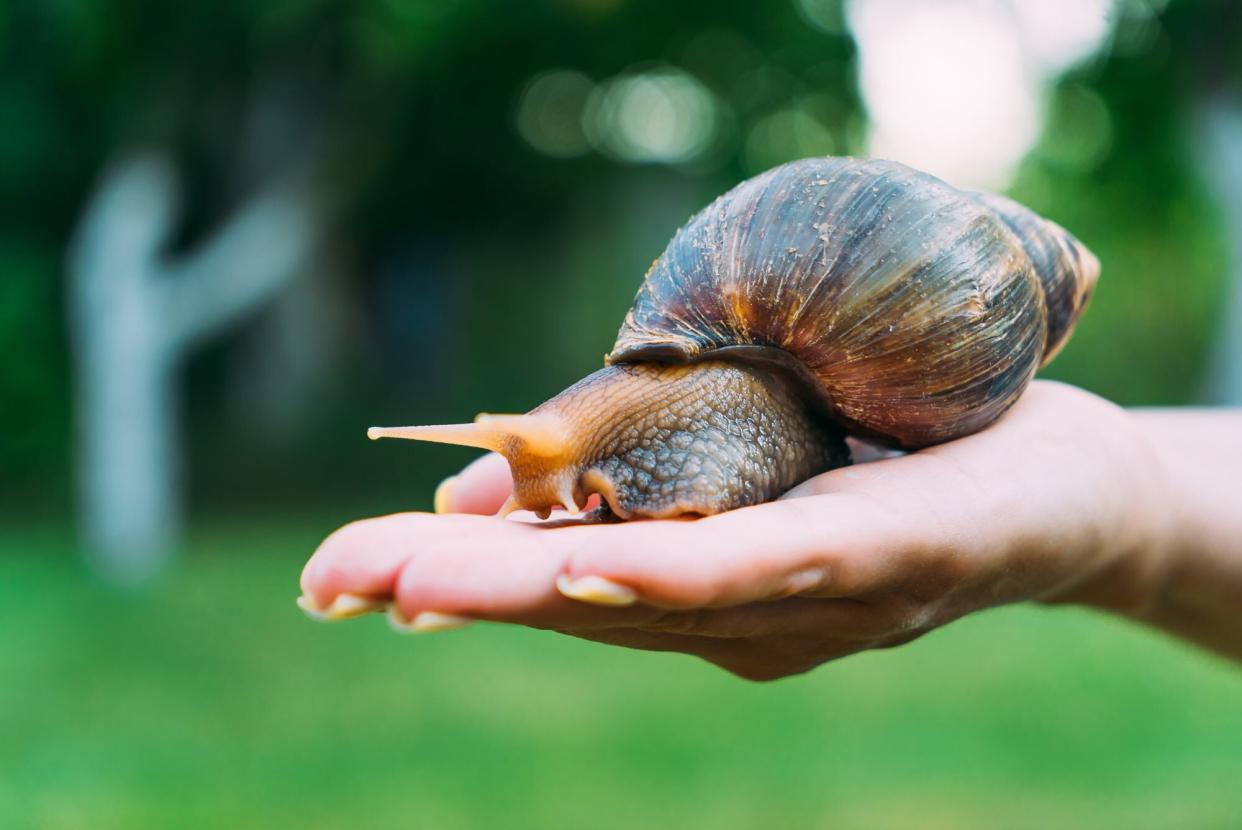Population of Invasive Giant Snails Known to Transmit Meningitis Identified in Florida

Vadym Terelyuk/Getty Images
A section of Florida's Pasco County is under quarantine after the discovery of an invasive snail with the potential to carry a deadly disease.
The Florida Department of Agriculture and Consumer Services (FDACS) confirmed a population of the giant African land snail in New Port Richey on June 23. In addition to damaging local ecosystems, the sizable snail is known to transmit a rat lungworm parasite that can cause meningitis in humans.
"The giant African land snail is one of the most damaging snails in the world and consumes at least 500 different types of plants," the FDACS warns. "These snails could be devastating to Florida agriculture and natural areas as they cause extensive damage to tropical and subtropical environments."
Native to east Africa, giant African land snails can grow up to 8 inches long and produce as many as 2,500 eggs per year. They have been eradicated twice in Florida since 1969. The last live snail in Florida was collected in Miami-Dade County in December of 2017.
Christina Chitty, a public information director at FDACS, told CNN that the population in Pasco County likely stemmed from the illegal pet trade. Giant African land snails are illegal to import or possess in the United States without a permit.
The quarantine in Pasco County prevents residents from moving the snail, plants, and soil, in or out of the designated quarantine area. Residents who think they have spotted a giant African land snail are urged to avoid touching it and to call the FDACS hotline.
Chitty told CNN that FDACS is using the pesticide metaldehyde to treat the soil. The eradication process is expected to take three years.
If you think you found a giant African land snail, keep your distance and email a photo for identification to DPIHelpline@FDACS.gov. You can reach the FDACS hotline at (888) 3970-1517.
For more information visit www.fdacs.gov/GALS.

